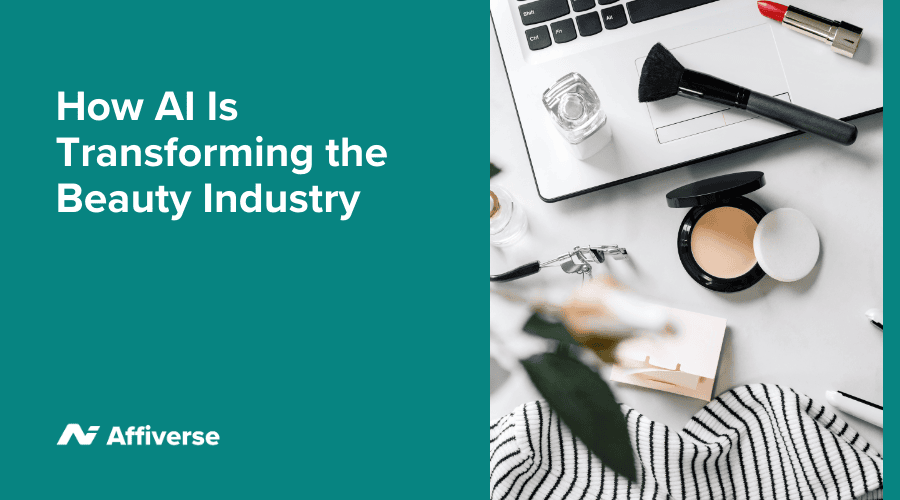How AI Is Transforming the Beauty Industry

The beauty industry is undergoing a digital revolution, and artificial intelligence (AI) is at the heart of this transformation. From hyper-personalised skincare solutions to virtual try-ons, AI is reshaping how consumers interact with beauty brands and how these companies operate. This shift is driven by the demand for tailored experiences, improved efficiency, and innovative product development.
As companies like L’Oréal, Ulta Beauty, and Estée Lauder embrace AI-driven tools, the industry is seeing changes across supply chain management, marketing strategies, and customer engagement. Here’s how AI is leaving its mark on the beauty sector.
Personalisation at Scale
Personalisation has become a key driver of customer loyalty in the beauty industry. AI allows brands to deliver bespoke recommendations by analysing individual skin types, preferences, and lifestyles.
1. AI-Powered Skincare Diagnostics
Tools like ModiFace, acquired by Loreal, use AI to analyse selfies and provide personalised skincare advice. These diagnostics consider factors like wrinkles, pores, and skin texture to recommend products tailored to the user’s needs.
2. Customised Formulations
Brands like Clinique and Function of Beauty are leveraging AI to create custom formulations for skincare, haircare, and makeup. By asking customers to fill out detailed questionnaires or upload photos, these brands use AI algorithms to match products with individual requirements.
3. Dynamic Recommendations
AI systems track customer preferences and purchase history to provide personalised suggestions for future purchases. For instance, Ulta Beauty’s AI-powered app recommends products based on past buying behaviour and user reviews.
Enhancing the Customer Experience
AI is revolutionising how beauty brands engage with their customers, offering interactive and immersive experiences that enhance convenience and build loyalty.
- Virtual Try-Ons: Virtual try-on technology powered by AI has become a game-changer for online shopping. Sephora’s Virtual Artist and MAC’s Try-On Mirror allow users to test makeup shades digitally before purchasing, reducing the uncertainty associated with online shopping.
- Smart Devices: AI-enabled devices like L’Oréal’s Perso create customised skincare or makeup products on demand. By analysing real-time environmental data, such as humidity and air quality, these devices deliver optimised formulations for the user’s location and skin condition.
- AI Chatbots: Chatbots powered by natural language processing are providing 24/7 support to customers. These bots can answer questions, recommend products, and even assist with bookings for in-store consultations or treatments.
Revolutionising Product Development
AI is not just improving customer-facing processes – it’s also transforming how beauty products are developed.
- Trend Prediction: AI analyses social media trends, customer reviews, and sales data to predict emerging beauty trends. This enables brands to stay ahead of the curve and bring relevant products to market faster.
- Ingredient Optimisation: By processing vast amounts of scientific research, AI can identify the most effective ingredient combinations for specific concerns. This accelerates innovation and ensures products are backed by data-driven insights.
- Sustainability in Development: AI helps brands optimise supply chains, reduce waste, and identify eco-friendly alternatives to traditional ingredients. This aligns with growing consumer demand for sustainable and ethical beauty products.
Improving Marketing Strategies
The integration of AI into beauty marketing is helping brands create more effective, targeted campaigns.
- Predictive Analytics: AI analyses customer data to predict purchasing behaviour, enabling brands to target the right audience with the right message at the right time.
- Dynamic Pricing: AI-driven pricing models allow brands to adjust prices based on demand, inventory levels, and competitor strategies, maximising profitability.
- Content Creation: AI tools like ChatGPT are assisting brands in generating engaging content, from social media captions to blog posts, ensuring consistent messaging across all channels.
AI in Physical Stores
AI is enhancing the in-store experience by blending digital innovation with traditional shopping.
- Smart Mirrors: Retailers like Neiman Marcus and Sephora are using AI-powered smart mirrors that provide personalised recommendations and tutorials based on a customer’s appearance.
- AI-Assisted Sales: Store associates are equipped with AI tools that provide insights into customer preferences, enabling them to offer tailored recommendations and improve the overall shopping experience.
- Inventory Management: AI optimises stock levels by predicting demand patterns and streamlining restocking processes, ensuring that customers can always find what they’re looking for.
Challenges and Considerations
While AI offers immense potential, it also presents challenges that beauty brands must address:
- Data Privacy: Collecting personal data for AI-powered tools raises concerns about user privacy. Brands must ensure compliance with data protection regulations like GDPR.
- Ethical AI Use: Algorithms must be designed to avoid bias and ensure fairness, particularly when recommending products for diverse skin tones and hair types.
- Accessibility: High-tech solutions must be accessible to a broad audience to avoid alienating certain customer segments.
The Future of AI in Beauty
As AI continues to advance, the possibilities for the beauty industry are endless. We may soon see AI-enabled platforms that offer real-time skin condition monitoring or hyper-personalised recommendations based on genetic data. Additionally, AI could play a larger role in sustainability efforts, helping brands minimise their environmental footprint.
For beauty brands, staying competitive will require ongoing investment in AI technologies and a commitment to using these tools ethically. By embracing AI, the industry can deliver unparalleled personalisation, innovation, and customer satisfaction.
Final Thoughts
AI is no longer a futuristic concept in the beauty industry – it’s a reality that’s reshaping how products are developed, marketed, and experienced. From virtual try-ons to personalised skincare, AI is creating new opportunities for brands to connect with consumers in meaningful ways.
For customers, this means beauty solutions that are smarter, more personalised, and more accessible than ever before. For brands, it’s a chance to innovate, stay ahead of trends, and build stronger, data-driven relationships with their audiences.
The future of beauty is powered by AI, and it’s only just getting started.






